Country life (or rural life for some folks): What sort of images come to your mind at this phrase? The beauty of nature on full display? The fresh smell of grass? Large open fields of grain under a picturesque blue sky with fluffy white clouds? A small town with cows lowing and sheep bleating in the pasture? Long drives down winding roads? Neighbors in overalls talking over their fences? Or maybe the banjo tune from “Deliverance” starts playing in your head?
Whatever the case, those of us who grew up in the city or suburbs have been fed certain images of what “country life” means. And while there could be truth to the images that come to mind, it should be noted there are many things about country life that are kind of difficult for people to understand until you actually come out and live here.

So let me illuminate some of these lesser-known parts of country life for you. Maybe it will help you be better prepared to make that move out of the city and into a small rural area. And even though many of the following things would be considered negative, I am not trying to say that country life is bad. It is just that most of the really beautiful parts of country life are already well known.
A Strange Smell on the Wind

I pause from my shoveling and look into the wind. Sniff … (pause) sniff … (pause again). “Hmm … that smells like lighter fluid,” I say to myself. Then turn to my wife and ask “Hey, honey, do you smell something?”
“I sure do,” she replies. “Smells like the neighbors are up to it again.”
“It’s like the third time this week! And I have so much work that needs to be done.” There is more than a modicum of annoyance in my voice. “Well, I guess we better put our tools away, and find something to do inside for a few hours, or until the wind changes. No sense harming our lungs.”
If you are someone raised in the city or suburbs, what would the smell of lighter fluid precede? Maybe a friendly neighborhood barbecue? And you know the smell of burgers and hotdogs is sure to follow, right? Well, not so out here. This might come as a culture shock for those who’ve lived in the city for some time, but the smell of lighter fluid (or gasoline or diesel) burning always comes before a trash fire.
How to deal with your garbage is not something that you really think about in the city or suburbs. You just put it in a trash can and then leave it at the curb for the trash guy to come get once a week. Out of sight and out of mind. But people out here don’t really have the luxury of trash pickup. The population is too scattered to warrant garbage trucks making the trip, so people have come up with an easy solution – throw it all in a pile (or in a 55-gallon steel barrel) and light that stuff on fire! Done.
Well, the problem with this is that all your neighbors who are down wind of you are going to be bathed in the toxic cloud the fire is releasing. And in the right weather conditions, the noxious cloud can be trapped close to the ground, forming a visible miasma that rests in the lowlands and hollers.
Just know that it can really bring whatever work you are doing to a swift close. So when you are looking for a place out in the country, pay attention to the property upwind of you (generally that means to the west here in the United States). In the end, you kind of need to accept that as a part of life, and find something else to do on those days – indoor chores or errands in town. Also note the frequency depends on your neighbors. It can be as frequent as a few times a week, or as seldom as once a month. But it will come, believe you me.
Road Maintenance

One of the most beautiful things about country living is the freedom. Freedom from many forms of government intrusion – from HOA rules to most building codes – and the lack of traffic. It’s a wonderful thing. However, freedom also means that you don’t get some of the services you are used to. One of the most common services city people rely upon every day that isn’t out in some parts of the country is road maintenance. It can amount to a big added responsibility out here. Especially for those of us who’ve become accustomed to public transport.
Many of these rural community roads are dirt or gravel. The roads work pretty well when it’s the middle of summer, or the weather is 75 degrees and sunny, but spring rains carve out big ruts in them and make small creeks (which often run across these country roads) impassable. Or winter storms of snow and ice blanket the roads with barely a salt truck in sight. So you begin to understand the ubiquity of 4×4 vehicles out here!
What does this mean for you as someone who might move to the country? You must understand that these roads often serve only a handful of households. It could be a mile-long road that has three families on it, one of which is yours. Do you think that the county government is going to do anything about these roads? Nope. But chances are your neighbors already have some sort of maintenance plan in place. I would go over and talk with them about it and learn how you can help. One of them will probably have a big tractor with a grading blade that they use to “fix” the road after the divots and ruts have gotten too severe for their vehicles to drive. As far as snow goes, one of them may have a salt spreader to attach to their truck, but I wouldn’t count on it. Most people just seem to drive on the snow without clearing it. Again, 4×4 vehicles are the general rule around here and for good reason.
The Most Common Predator

If you were asked “What is the most common predator you will face in the country?” What would you say? Wolves? Coyotes? Foxes? Well, you got the right family of animals – Canidae – but not the right species. As far as our experience goes, and that of many others we have talked to, the biggest threat to animals is Canis familiaris. That’s right, the domesticated dog.
Sure, an opportunistic raccoon may take a chicken or two, a hawk might grab a duck, and a fox might nab a lone guinea fowl, but few other animals you meet out in the country are so capable of wanton destruction as the common dog. A strong and well-built enclosure will keep out all those other predators, but a determined 75-pound dog (or larger) can be quite difficult to deter. I have seen dogs tear through a plywood enclosure that was reinforced with welded wire to get at the rabbits inside.

So where do these dogs come from? My neighbors and friends tell me a good portion come from city people dropping off their no-longer-wanted dogs in the country. Yeah, when Fido was taken to a nice farm in the country, this is what was meant. “Dropping off” is certainly not the only source, however. There are plenty of country people selling puppies for an extra source of income (one look at Craigslist will show you that), and I am sure they don’t sell them all. Some of these puppy mills will just kill the unsold dogs outright, but others just let them go free to die a more “natural” death (usually by getting hit on the road). And one final source of roaming canines is the rather large number of dogs that nearby residents keep and don’t lock up.
The result is numerous dogs roaming during all times of the year. A couple of ways to see just how big a problem it is in your neck of the woods are either setting up a trail camera, or waiting for one of the most revealing sights in the country — the morning after a fresh snowfall, just look at all them footprints!
The part of this problem that bothers me most is these dogs seem to kill just to kill. If given the chance, they will take out an entire flock of chickens, and not eat any of them. They will run down a lamb and kill it just to leave its body rotting in the field. At least the other predators kill to sustain themselves. I don’t mind losing a small duck to a black rat snake every now and again since I know that that black rat snake had already killed countless rodents to get to that size, and will continue its good service to the homestead in the future. Roaming dogs don’t provide that service.
Listen to That Rumble

This one will probably come as somewhat of a shock to many: There are places in the country that can be louder than the big city or suburbs. How, you might ask? Isn’t rural living far away from noise of city life and traffic? I mean, you are out in the boonies, right? Should be quiet enough to hear the crickets all through the night. Sure, this may be the case if you are way down one of those aforementioned dirt roads, but if you are close to any of the main county thoroughfares (usually revealed by a high speed limit), you may be in for a surprise.
There are a number of things that make living near a county thoroughfare a raucous affair. Some of these sounds are a mild annoyance and easily gotten used to over time so that you barely notice them. The worst remain a persistent issue even after many years of listening to them. So, let’s go from the least offensive to the most.
Down at the bottom of the list are rumble strips on the side and center of many thoroughfares. Apparently, drivers are not paying close attention to the edge of the road and drive over these strips, causing a loud and low rumble for as long as drivers take to correct themselves. This is especially common if you live near a road with a curve in it (like country roads are known for). These rumbles are certainly audible, but you get used to them after a while, even if you are right next to the road.
The next level up consists of cars in a poor state of repair typically with damage to the muffler or other component of the exhaust system. The muffler is designed to do just that, muffle sound. So, if it is damaged, the car makes a loud noise. Loud, but still near the bottom of the list.
Tier three is the sound of diesel engines in semi trucks. Diesel engines are powerful beasts. And in order to generate that much power – the power to pull full trailers of commercial goods, beds of gravel, or many dozens of tree trunks destined for the mill – powerful controlled explosions take place within the engine. These engines can be heard from about a half mile down the road, and get louder as they approach. I will include the sound of some trucks driven by your neighbors in this third tier. To stand out from the crowd of other 4×4 trucks, some young guns pimp out their rides to be as loud as possible. These modified trucks usually have a powerful diesel engine, and the exhaust system is also changed in to produce more sound. In some cases, these trucks rival the loudest semis.
The highest tier is given to something produced by the semi trucks of the third tier. As a city dweller or a suburban resident, you might notice signs posted up at city limits that state “No Engine Brake.” You may look at those signs and wonder what they are talking about and why such a sign needs to be posted. Well, a few weeks living near a county thoroughfare will cause you to cease your wonderings.
I can assure you that it is one of the loudest sounds that I have come across as a person who isn’t routinely around jet engines or the like. It is a sound like that produced by a rumble strip, but it has been injected with steroids, hooked up to a megaphone, and then turned up to the max on an amplifier. It is a sound that you not only hear in your ears, but feel in your internal organs. Yes, you will find yourself loving those “No Engine Brake” signs of former life. You will wonder how you ever slept without one posted by the road near your home.
It should be noted that there really is no time frame in which these sounds take place. They happen every day and every night. They happen at 3 in the afternoon and 3 in the morning. I have noticed that the quietest time is from Saturday night until Sunday morning. It seems that the semi trucks do not travel so much during that time.
You may think that I have devoted too much ink to this one aspect of country life. I would argue that none of the others come close to the disruption caused. Your sleep will be affected by it, and a good night’s rest does impact what you are able to accomplish on your homestead. So, I figured it was something important to bring to your attention.
Taking Care of Business

“Hello, Sheriff. There is a former tenant on my land. I asked him to leave, and he is now threatening me with a chainsaw. What should I do?”
“You have a gun, right?” asks the sheriff.
“Of course.”
“Well, if he comes at you again, do what you need to do to defend yourself.”
The above is a true story as told by a neighbor of ours. And as he is not the lying sort, I do not doubt the authenticity of it. In addition, my own experiences with the sheriff show the same trend. I know this probably comes as a shock especially to those suburbanites in the audience. You most likely expect to call the police and have them arrive within a reasonable time. The necessity of having to defend oneself or take care of some serious situations on one’s own is a rarity. While a chainsaw-wielding former tenant is probably not going to happen to you in the country, other situations will probably arise, and you will not be able to call the police.
Be aware that the hardest part of this situation is that all emergency services are far away. Out here people rely on life flight helicopters almost as much as ambulances to get them out for a medical emergency. Fire trucks might arrive for a fire, but there are no hydrants to hook up hoses. And police response, if available, will certainly be longer than what you are used to in case of a home intrusion or other trespasser (whether that be man or beast).
The lesson here is that you are going to have to learn to take care of a whole host of things by yourself. You will have to make tough decisions, often when you are least ready for it. Ask yourself if you have the fortitude of mind to handle such things on your own. Can you stay calm in an emergency? You very well may have to.
Conclusion
So there you go. Five things that I had to learn on my own. Five things that my former life as a city dweller did not prepare me for or even hint at being a part of country life. Hopefully, this will help you be a bit more ready for what is to come out in the country. Please note that the benefits of living in the country FAR outweigh any of the negatives. Even if I had known all these things, I would not have hesitated for the tiniest fraction of a second to make the move out here. Please do not take this article as a warning so much as a heads up. Country life is good, very good. Living it is (as close as we can come to) the life we were created for.





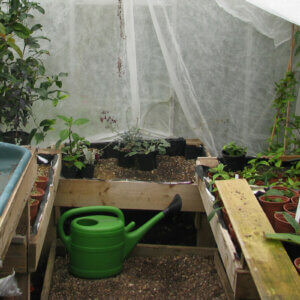





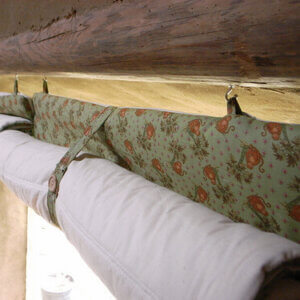





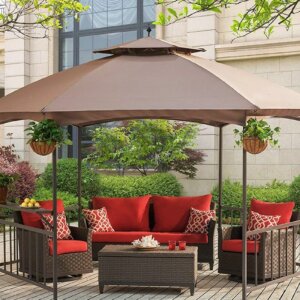





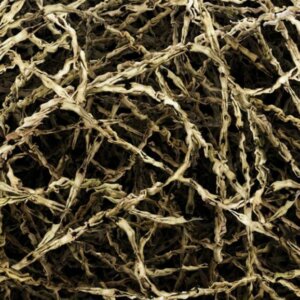
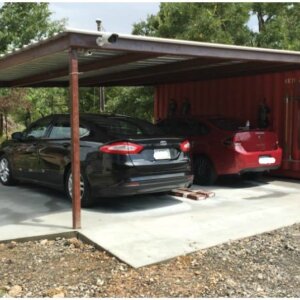
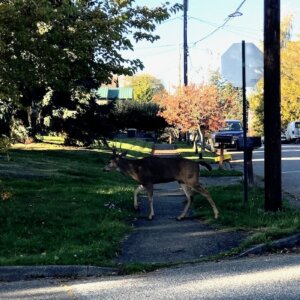















As far as noise pollution in the country, there are a couple of items that you may have missed or maybe are just lucky enough not to be near.
That would be the incessant Putt-Putt of people riding around on their four wheelers instead of walking, this is usually bad enough with the locals but increases on the weekend when the people from the cities visit their rural property.
Many of them come to the country merely to shoot their high powered rifles, so that gunfire and the four-wheeler noise is quite prevalent during the weekend.
There’s also the people that do not have electricity in their cabins and therefore determine that running a obnoxiously loud generator to provide lighting and power for their electric screw guns would not be of any offense to the neighbors.
These have been the biggest flies in the ointment in our area of rural Minnesota.
And Wren, I applaud your use of the philosophy, that the country is as close to living the life that we should be living. Ideally that would be some type of low-tech hunting and gathering.
Rick